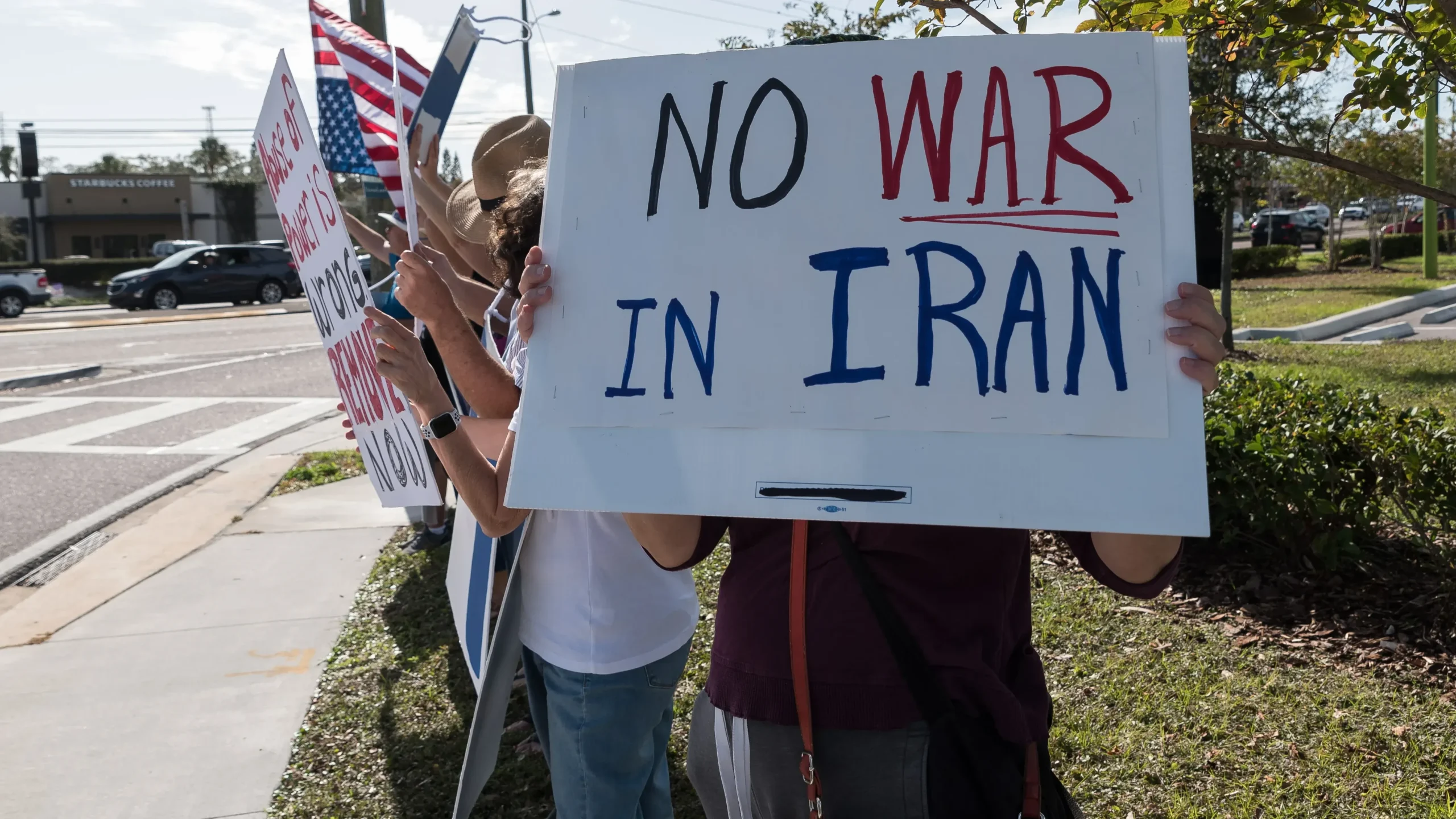Trump’s strike on Iran’s nuclear sites has dragged the US into war, giving in to Israel. Cornered and isolated, Iran has little to lose, says Mouin Rabbani.
On June 21 2025, the United States bombed Iran, concentrating its massive firepower on three Iranian nuclear installations. It was, by any measure — and like the war launched by Israel on June 13 — an unprovoked attack.
None of the justifications pass the smell test. As for the status of these attacks under international law, any such analysis is irrelevant: international law as we once knew it no longer exists. For good measure, Israel and the United States have most likely also dealt a fatal blow to the global nuclear regulatory regime.
I continue to maintain that the latest developments were not inevitable, and that the Trump administration did not assume office with a determination and plan to go to war against Iran. The evidence suggests that Trump, and key members of his entourage, were serious about pursuing negotiations with Tehran, but that Trump and his de facto Secretary of State Steve Witkoff were then persuaded on a different course of action by a coalition consisting of Israel, its loyalists in the US (including within the administration), and anti-Iran war hawks.
The strategy was twofold: first, to present Iran with deliberately unrealistic demands under the pretence that they were achievable; then, once those demands were predictably rejected, to endorse an Israeli attack on Iran, framed as a way to strengthen Washington’s negotiating position and compel Iranian capitulation.
After Israel launched its war, a concerted campaign began to convince the Narcissist-in-Chief in the White House that he could not afford to appear weak. He was told he had a rare chance to secure a foreign policy victory and that, unlike Iraq, this would be a “One and Done” operation, swiftly followed by a prostrate Iran ready to make a deal.
It seems doubtful the US attacks were as decisive and successful as claimed by Trump. The US is also said to have sent messages to Iran that regime change is not on the US agenda, and that no further attacks were planned.
Together with Iranian claims that the inflicted damage fell far short of destruction, and that key machinery and materials had been safely relocated elsewhere before the bombings, this could have resulted in a relatively restrained Iranian response, or at least one where it did not necessarily feel compelled to directly attack US forces and assets.
Iran could, for example, have directed its fury at Israel, which Iran views as responsible for its current predicament, or withdrawn from the Nuclear Non-Proliferation Treaty (NPT), which, unlike Israel, Iran has ratified.
It could have also chosen to prevent shipping through the Strait of Hormuz, through which 20-30 per cent of global energy exports pass, and coordinate efforts with Ansar Allah to similarly block the Bab al-Mandab, shutting off the Suez Canal through which 10-15 per cent of global trade reaches its destination.
While this would reduce Iranian oil exports to zero, and severely affect China (which imports most of its oil from the Persian Gulf), it would send prices at the pump in the US through the stratosphere at the height of the summer driving season. That won’t go down very well with the MAGA base, which voted for Trump in significant part on account of his proclaimed opposition to costly and needless forever wars in the Middle East.
With Trump’s short White House address several hours after the attacks, the situation changed dramatically. The US president essentially demanded an Iranian capitulation to the US and Israel, and threatened additional attacks if it demurs.
Trump demanded that Iran unconditionally end the war, but made no similar demand of Israel, which not only initiated it but continues to escalate its bombing of Iran.
To the contrary, he made a point of emphasising the intimate coordination between the US and Israel, and his close partnership with Israel’s prime minister, the indicted war criminal and fugitive from international justice, Benjamin Netanyahu.
The message received by Iran – loud and clear – is that Israel retains full US support to continue its attacks on Iran as it deems fit, and that if Iran continues to retaliate, it can expect further bombing by the US. The Iranian leadership has repeatedly demonstrated that it is not impulsive and responds with calculation.
But it is very likely to have concluded that it now can no longer afford not to inflict losses directly on the US, and that indirect damage will only expose it further and dangerously weaken its negotiating position. This is most likely also the calculation shared by Israel and its allies in Washington, who, in the wake of any successful Iranian retaliation against the US, will promote the argument that only regime change in Tehran will resolve the issue.
Iran is in a very unenviable position. Significantly weakened and still isolated, with strategic allies in Russia and China that are far less dependable than is the US for Israel, Tehran is damned if it acts, and damned – arguably more so – if it does nothing.
At the same time, Iran has spent many years preparing for precisely the scenario it is confronted with today, and it is most unlikely to prioritise self-preservation if the price is capitulation. Expanding the conflict to the region and inflicting losses directly and indirectly on the US appears to be its most likely course of action. In a calculated rather than impulsive fashion.
The Iranian leadership, and any successor if this one is deposed, will also come under tremendous elite and popular domestic pressure to cross the nuclear threshold and break Israel’s regional monopoly on the possession of a nuclear arsenal.
If Tehran reaches the conclusion that the only alternative to a Middle Eastern North Korea is a second Iraq, and succeeds, the US-Israeli war will have had the unintended consequence of transforming Iran’s nuclear enrichment program from negotiating leverage into an atomic bomb.
Interviewed on Al Jazeera English, Harlan Ullman, the main author of the “shock and awe” military doctrine, surmised that the US attack on Iran most likely represents the beginning of a new conflict rather than, as touted by Trump, the end of one. Sounds about right. Fasten your seatbelts.
Mouin Rabbani is Co-Editor of Jadaliyya and a Non-Resident Fellow at the Center for Conflict and Humanitarian Studies.
Follow Mouin on X: @MouinRabbani

